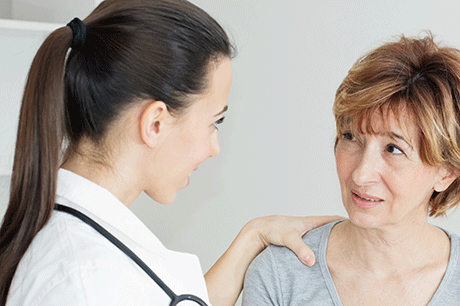Heart disease used to be considered a men’s health issue, but that’s certainly not the case today. Now, heart disease is the number one killer of women in America. Just as many women die from heart-related complications as men, but much of the damage is preventable and treatable.
Many people suffer irreparable heart damage or even death because they fail to seek medical attention when they are feeling the symptoms of a heart attack.
Some people simply shrug the symptoms off until it’s too late. Others misdiagnose the issue and don’t think it’s worth waiting in an emergency room for hours. Fortunately, emergency rooms in some cities are getting help from urgent care clinics that can handle a number of ailments. For example, there are now dozens of clinics and other options for urgent care San Diego residents can go to instead of the emergency room, but if someone is experiencing a heart attack they should immediately call 911.
The fact of the matter is women are less likely to survive a heart attack than men. If you are experiencing the symptoms below, it’s critical that you seek the help of a medical professional immediately.
17 Warning Signs of a Heart Attack in Women
The symptoms of a heart attack vary for men and women. For women, symptoms can be much more subtle and start well before a heart attack occurs. Doctors are unsure as to why this is, but they are currently exploring medical, biological and social variations between the sexes to better understand why women experience the symptoms below.
Early Signs of Heart Problems
These early symptoms can occur up to two months before a heart attack.
· Unexplained Fatigue (Over 70% of women report this symptom.)
· Disturbed Sleep
· Indigestion
· Shortness of Breath
· Racing Heart
· Anxiety
· Arms Feeling Heavy or Weak
Symptoms During a Heart Attack
When a heart attack occurs these are the most common symptoms for women.
· Extreme Fatigue
· Shortness of Breath
· Sudden Sweating
· Weakness
· Nausea
· Dizziness
· Cold Sweat
· Pain in the Neck, Jaw, Back Shoulders, Arms or Abdomen
· Arms Feeling Heavy or Weak
If you feel these symptoms call 9-1-1, especially if they continue for more than five minutes.
A Word about Chest Pain
Many people mistakenly believe that chest pain is the key indicator of a heart attack. While this is often true for men, it’s usually not the case for women. Only about one out of every eight women that have a heart attack say they felt chest pain. Even then it isn’t often described as pain but rather a sensation of pressure, tightness or aching in the chest area.
Conditions That Increase the Risk of Heart Disease
There are also a number of conditions and lifestyle choices that can increase the likelihood of heart disease development in women. They include:
· High BMI – Healthy BMI is between 18.5-24.9.
· High Blood Pressure – Blood pressure should be under 120/80 mm Hg.
· High Cholesterol – Total cholesterol should be under 200 mb/dL.
· Diabetes – Women with diabetes are more likely to experience heart problems at an earlier age.
· Metabolic Syndrome – This is the top indicator of potential heart disease. The condition includes high blood pressure, high triglycerides, glucose intolerance, low HDL cholesterol and large waist size.
· Menopause – Hormones that once protected your heart are no longer in abundance.
· Depression – People who are clinically depressed have a higher risk of heart attack.
· Chronic Stress – Women who experience chronic stress are also more likely to suffer a heart attack.
· Smoking – Just 1-4 cigarettes a day can double your risk of heart disease.
· Inactive Lifestyle – Women should aim to get at least 30 minutes of moderate physical activity a day.
· Unhealthy Diet – A diet high in trans fats increases the risk of heart disease.
Women are more likely to die within a year of having a heart attack compared to men. It’s important that all women make heart health a top priority and take steps to prevent heart disease well before symptoms appear. The issue is particularly pressing for women who have already experienced menopause because of the decrease in estrogen. Beginning at the age of 25 all women should regularly visit a primary care doctor to make sure their heart health is on track.
If you are feeling any of the symptoms above, it’s important that you seek out the help of a medical professional. It could be nothing more than burn out from a busy schedule, but it could also be a sign that heart disease is affecting your health.
Photo credit: cardiosmart.org



